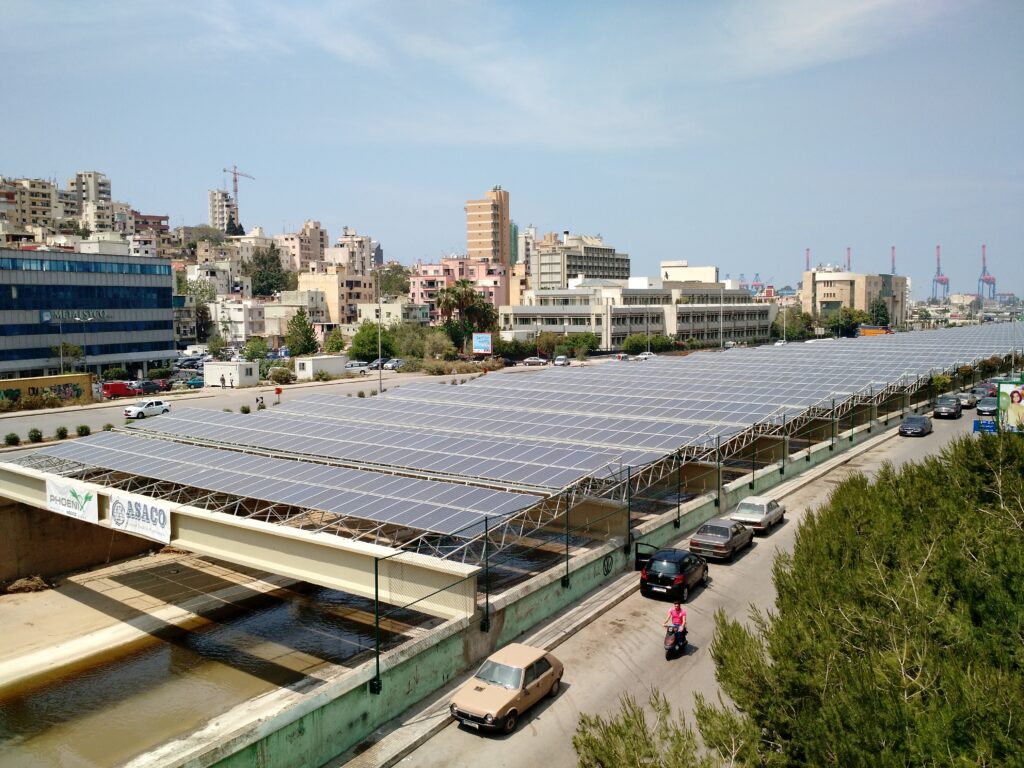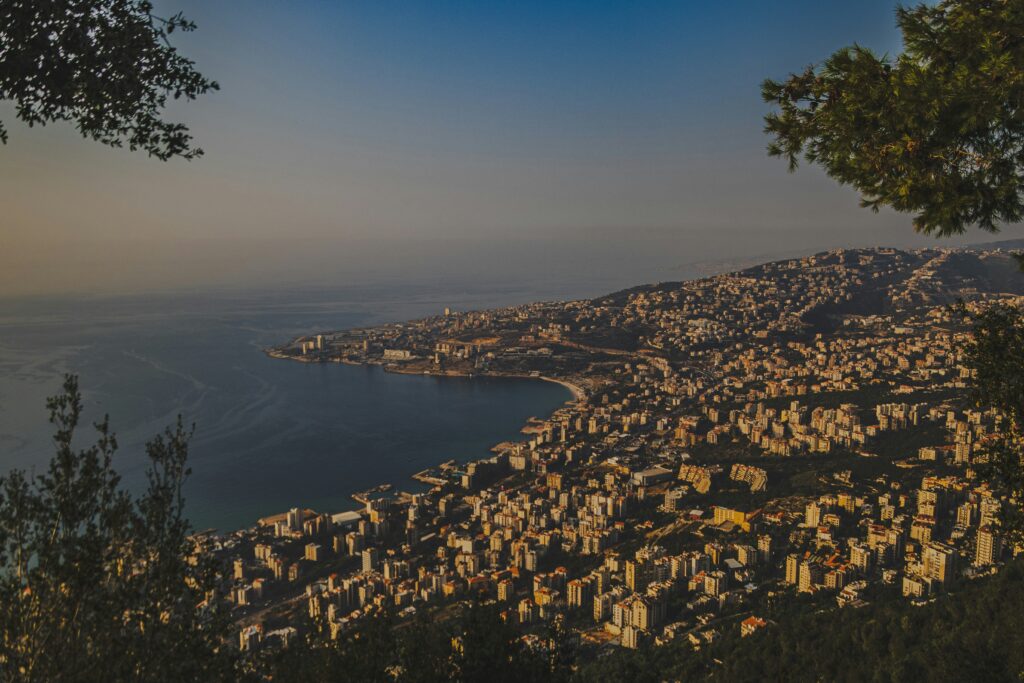Lebanon’s Optimism for Renewables
The Mediterranean nation’s real chance to meet – and surpass – its renewable energy goals.
The Lebanese Center for Energy Conservation (LCEC) is Lebanon’s national energy agency. Registered as a non-profit organisation under the Lebanese Ministry of Energy and Water (MEW), it serves as the technical arm of the Lebanese government on all matters related to energy efficiency and renewable energy.
REVOLVE spoke with Dr. Joseph Al Assad, President and Director General of the LCEC, to find out more about the country’s challenges and opportunities when it comes to renewables, climate change, and regional interconnections.
Can you tell us the history of the LCEC and its central mission?
The LCEC was originally established in 2002 as a project by the United Nations Development Programme (UNDP) and was integrated into the MEW as a dedicated policy research centre in 2011. Our mission is to lead Lebanon’s efforts in energy efficiency and renewable energy development, while also exploring opportunities for decarbonising the country’s energy sector.
Central to our approach is a strong emphasis on energy security, which we consider a critical national priority. To that end, we work on policy development and project implementation aimed at shaping the local energy market in alignment with the global transition toward sustainable energy.
The LCEC began in 2002, when the UNDP signed a Memorandum of Understanding with the MEW to launch a five-year project focused on improving energy efficiency. Since then, the LCEC has reached several key milestones. In 2007, the MEW formally adopted the LCEC as part of its structure, marking the centre’s institutionalisation. In 2011, it was officially established as a non-profit organisation within the ministry.
The UNDP continued its support of the LCEC until around 2013. Over time, the LCEC received significant backing from the MEW. As of 2025, the LCEC operates as a fully sustainable entity, actively collaborating with various national and international partners. Our key partners include the European Union, the Italian Ministry of Environment and Energy Security, the Central Bank of Lebanon, and a number of international initiatives and institutions.
Lebanon’s Energy Landscape
Lebanon’s energy sector has been in crisis for decades. Electricity is primarily produced from heavy fuel oil power plants and diesel generators, with approximately 97% of the country’s energy being imported, according to the Lebanese Foundation for Renewable Energy.
Before 2019, the state-owned utility Électricité du Liban (EDL) had an installed capacity of around 2,000 MW, while peak demand was estimated to reach up to 3,000 MW.
The sector’s problems worsened significantly after 2019, during the country’s economic crisis. The state could no longer afford to import fuel, leading to a drastic reduction in electricity supply, down to an average of 3-4 hours a day. In response, two alternative sources of electricity emerged: privately-owned diesel generators and renewable energy, mainly solar power.
Diesel generators pose serious environmental and health risks. In 2021, researchers from the American University of Beirut warned that toxic emissions from diesel generators had the potential to increase by over 300% compared to 2019 levels.
Prior to the crisis, renewable energy contributed only around 100 MW to the grid. However, by June 2023, it was estimated that decentralised solar installations had reached a combined capacity of 1,000 MW.
What are some of the current projects at the LCEC?
We are engaged in a wide range of internationally funded projects, many of which focus on the building sector, particularly enhancing energy efficiency in buildings. For instance, under the GIZ ACE and SUFA projects, we carried out implementation activities aimed at the solarisation of key public sectors in Lebanon, including public schools. We have led several initiatives (not just one) targeting energy efficiency in schools. Another project is Build_ME, which provides technical assistance to support the transition toward climate-neutral building standards in the MENA region.
These projects represent a part of our current and recently completed activities. However, another equally important area of our work is the development of national energy policies. For example, in collaboration with GIZ and through the MED-GEM project, we contributed to the development of Lebanon’s national hydrogen strategy.
We also prepared Lebanon’s second National Renewable Energy Action Plan (NREAP), which builds upon the first NREAP and the national energy outlook developed with the support of the International Renewable Energy Agency (IRENA). We are working on the third National Energy Efficiency Action Plan (NEEAP), which will be published soon, along with several market assessments such as the national solar market study.
In addition to projects and policies, we contribute actively to the development of the legal framework for energy in Lebanon. Our latest legislative achievement is the Decentralised Renewable Energy Law (318/2023), and we are currently drafting the Energy Efficiency Law.
Another important dimension of our work involves integrating Lebanon into regional and international renewable energy and energy transition networks. We represent Lebanon at the Regional Center for Renewable Energy and Energy Efficiency (RCREEE) and collaborate closely with the League of Arab States through its energy department. On a broader scale, we represent Lebanon at IRENA and host the secretariat of the World Energy Council (WEC) Lebanon Committee.

How would you characterise the status of sustainable energy in Lebanon?
I believe we are in our best days of renewable energy development – though, of course, there is always room for improvement. If we look at the percentage of renewable energy in the energy mix, we are achieving record highs year after year. I won’t share an exact figure just yet – awaiting the official publication of the Renewable Energy Status Report, which will be the definitive source – but I can confirm that we have surpassed the 20% threshold.
The scale of photovoltaic (PV) installations across the country is huge. During a discussion with colleagues involved in a satellite imaging project that maps solar installations, the figures they reported were even higher than LCEC’s estimates. By 2025, it is safe to say that Lebanon will have exceeded 1,500 megawatts (MW) of installed solar PV capacity. That’s why I consider our current performance a record high.
By 2025, it is safe to say that Lebanon will have exceeded 1,500 megawatts (MW) of installed solar PV capacity.
What is the role of LCEC in this achievement? Since we began seriously focusing on renewable energy in 2008-2009 up until the economic crisis in 2020, we struggled to unlock the market’s full potential. However, our efforts were important in preparing the private sector for what followed in 2021-2023.
The financial crisis which included an energy crisis triggered a rapid acceleration – achieving in a single year what took us 10 years to build in terms of capacity. This boom was driven not only by the crisis itself but also by the removal of energy subsidies. The removal of these subsidies prepared the ground, allowing renewable energy – especially solar – to become a competitive and attractive alternative, and allowed all the efforts that LCEC had put in the previous 10 years to flourish. As a result, Lebanon saw over 1,000 MW of solar PV installations in a single year.
Lebanon is on the right track and stands out as one of the few countries with a real chance to meet – and potentially surpass – its renewable energy goals as outlined in its Nationally Determined Contributions (NDCs). With the right support and a stable environment, we are confident that we can at least achieve our 2030 target. Under more ambitious scenarios, Lebanon could surpass the 30% renewable energy share in total energy consumption.
Where do you see the challenges for Lebanon regarding sustainable energy?
The key challenge facing Lebanon in the transition to sustainable energy is stability. While the crisis has driven the growth of small- and medium-scale renewable energy installations, moving toward large-scale projects requires a stable political and economic environment. To attract private sector investment in these projects, Lebanon must ensure political stability, implement macroeconomic reforms, and restore the functionality of its banking sector.
To attract private sector investment in these projects, Lebanon must ensure political stability, implement macroeconomic reforms, and restore the functionality of its banking sector.
From a technical standpoint, rehabilitating the national electricity grid is essential.
An upgraded grid would allow for greater integration of renewable energy at scale. Looking ahead, if Lebanon is to realise its full renewable energy potential, regional interconnections will be critical. Such connectivity would enhance grid stability and enable a higher share of renewable energy in the national energy mix.

What is the situation regarding regional interconnections when it comes to renewable energy, and how do you envision the future?
Lebanon has the potential to play a vital role in regional collaboration on renewable energy. From a private sector perspective, Lebanese companies, especially EPC (Engineering, Procurement, and Construction) firms specialising in solar PV installations, have developed a high level of expertise unmatched in the region. Lebanon could serve as a knowledge hub, sharing best practices and technical know-how related to solar integration across the region.
Looking ahead, if the region experiences a period of relative political and economic stability, there is an opportunity to think strategically and regionally about optimising the energy mix. Countries could benefit from one another’s resources, creating win-win scenarios. A model to think of is the Nordic energy market, where interdependence and cooperation have enhanced energy resilience. We can dream of and build on those examples.
In our region, resource diversity is highly complementary: Lebanon has strong solar and wind potential, while other countries possess hydro or other renewable sources. A well-integrated regional system could maximise these complementarities.
One initiative that could facilitate such integration is “The Seven Countries Interconnection Project.” This project links Libya, Egypt, Jordan, Syria, Iraq, Turkey, and Lebanon. While the interconnection between Jordan and Syria currently faces operational issues, the broader project remains promising. It could significantly enhance grid reliability for all member countries and open the door for further regional connections such as linking Egypt to Saudi Arabia.
Do you think climate change, especially water scarcity, will be a challenge for renewable energy in the future?
Yes, climate change – and water scarcity in particular – can pose challenges for renewable energy, especially for large-scale solar PV projects where water is needed to clean the panels. That said, water scarcity will likely become a critical issue for the country in general, even before it directly impacts renewable energy deployment.
If we don’t take serious measures to improve water efficiency and implement national-level water management projects, including stricter control over the unsustainable extraction of groundwater, which has been increasingly common, this could undermine broader development goals, including those in the energy sector.
Beirut Energy Week is planned to be in October this year?
Hopefully, yes. We expect Beirut Energy Week to return to its rightful place and position this autumn. We had to skip last year due to the unfortunate circumstances that affected the country. However, Beirut – and its Energy Week – deserve to be back on the international map as a key event that showcases innovation and progress in the energy sector, in Lebanon and across the region.
Looking back, many key initiatives, partnerships, and projects were launched during previous editions of Beirut Energy Week. We hope to continue this legacy and refresh the agenda with themes and perspectives.
We are truly looking forward to Lebanon reclaiming its leadership role in the region, particularly in renewable energy integration and smart grid development. We see an opportunity to transform the many challenges our country has faced into a real, forward-looking energy transition. Sustainable energy can become a pillar of our economy and LCEC will continue to be the driving force of this transformation.